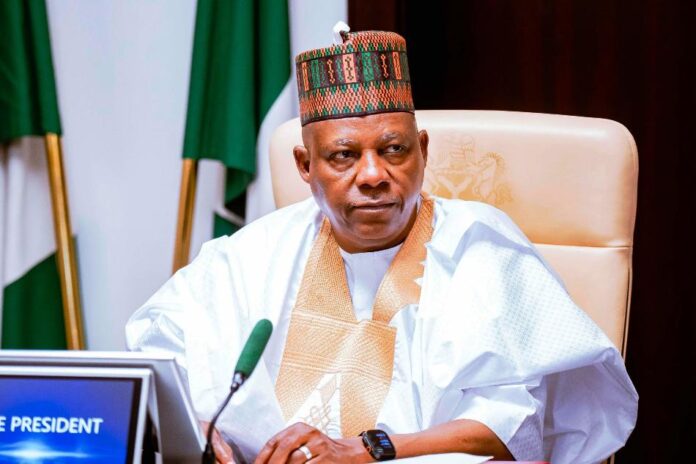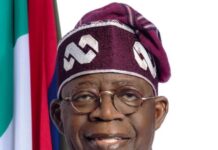By Mfon Udott
Power is said to be the possession of controlling influence over a people or a country. The possessor of such power has the authority or right to give orders and make decisions within his sphere of influence. Depending on his idiosyncrasies and caprices, the leader wields this influence to achieve certain objectives, with his style varying according to personal attributes or organizational contexts. Many theorists view leadership styles from different perspectives. For instance, the Great Man Theory holds that leaders are born, not made, and posits that leadership is inherent.
In Africa, examples abound of leaders who hold power solely for themselves and their cronies. Many of them turn democratic nations into monarchies, while others declare themselves life presidents – some of them are still in power today. The likes of Teodoro Obiang Nguema Mbasogo of Equatorial Guinea, Paul Biya of Cameroon, Isaias Afwerki of Eritrea, Yoweri Museveni of Uganda, and many others have ruled for more than three decades. For them, power is treated as a family business in which no one else has the right to participate
In our own part of the globe where politics has been reduced to business, it is quite rare to find a leader who goes outside his enclave to appoint people on merit to serve the common good and even development of the nation. Holders of key positions recognize only their sons, daughters and close relations.
However, there is an exception to this kind of egocentric leadership, and a microscopic few make the difference. In Nigeria, Kudos must be given to Senator Kashim Shettima, Nigeria’s Vice President. An agricultural economist, accomplished banker, and politician, Senator Shettima sees power in leadership as a tool for development and opportunities to empower others, especially the common people.
VP Shettima has remained a detribalized personality in a country like Nigeria, where regional politics hold sway. One would have expected appointments by Shettima to be dominated by the Kanuri people, or others from the North-East, his home region. This is not the case; most of his appointees are from other geo-political zones of Nigeria. This underscores his detribalized nature and quest for national integration.
Out of 18 special advisers and senior special assistants appointed by President Bola Ahmed Tinubu on the recommendation of Vice President Shettima to actualize the Renewed Hope Agenda of the administration, the following are key appointments from other zones of the country other than his own Northern region:
Dr. Tope Kolade Fasua (South-West) – Special Adviser to the President (Office of the Vice President) on Economic Matters; Temitola Adekunle-Johnson (South-West) – Special Adviser to the President (Office of the Vice President) on Job Creation and MSMEs; Kingsley Nkwocha (South-East) – Senior Special Assistant to the President (Office of the Vice President) on Media and Communications; Peju Adebajo (South-West) – Senior Special Assistant to the President (Office of the Vice President) on Investment and Privatisation; Dr. Kingsley Uzoma (South-East) – Senior Special Assistant to the President (Office of the Vice President) on Agribusiness and Productivity Enhancement; Dr. Mariam Temitope (South-West) – Senior Special Assistant to the President (Office of the Vice President) on Regional Development Programme; Marion Moon (Kenyan) – Technical Assistant to the President (Office of the Vice President) on Agriculture.
Other aides from his Northern zone include Rukaiya El-Rufai (North-West) – Special Adviser to the President (Office of the Vice President) on NEC & Climate Change; Aliyu Modibbo Umar (North-East) – Special Adviser to the President (Office of the Vice President) – General Duties; Bashir Maidugu (North-East) – Deputy State House Counsel (Senior Special Assistant to the President); Ishaq Ahmed Ningi (North-East) – Senior Special Assistant to the President (Office of the Vice President) on Digital Media & Emergency Management; Gimba Kakanda (North-Central) – Senior Special Assistant to the President (Office of the Vice President) – Research & Analytics.
The Vice President’s Chief Security Officer is an Igbo man from the South-East, alongside several other senior officers from different parts of the country. Indeed, Senator Shettima is a man of vision—a detribalized Nigerian who craves national integration and even development. He is truly a born leader and a man for the future.
Before his foray into politics, Shettima sharpened his skills in the banking sector where precision, foresight and resilience became his defining traits. These qualities, nurtured in the world of finance would later translate into governance, guiding his steady rise from commissioner to governor, senator, and now Vice President of the Federal Republic of Nigeria. At every stage, he has carried the weight of responsibility with calm assurance that inspires trust and respect.
His story is not one of loud proclamations or empty gestures. It is a story of substance. His patriotism does not yawn for attention; it is seen in his work. His loyalty is not declared with slogans; it is proven in action. His leadership is not anchored on self-promotion; it is defined by service, often quiet yet undeniably effective.
As Nigeria navigates through challenging times, Shettima’s presence as number two man at the helm of national affairs has become a steadying influence. He brings balance in moments of uncertainty, depth in times of debate, and direction in seasons where clarity is most needed.
Vice President Shettima is also a bridge of balance in Nigeria, with an economic landscape that requires constant dialogue, coordination, and alignment between federal and state governments. That responsibility rests with the National Economic Council (NEC), a monthly forum tasked with the responsibility of harmonizing economic policies and advising the President on the nation’s economic direction. At the helm of this critical body is a cynosure, Shettima, whose leadership has provided clarity and balance at a time when stability is vital. Rather than seeking attention or applause, the Vice President has consistently ensured that economic conversations remain focused, pragmatic and inclusive—bridging diverse perspectives into a common path forward.
NEC comprises governors of the 36 states of the federation and the FCT minister; the governor of the Central Bank of Nigeria, as well as other co-opted government officials such as the Minister of Finance, Accountant-General of the Federation and Minister of Budget and National Planning.
That Vice President Shettima was well-prepared for this role is evident in the depth of experience he has garnered over the years. His years in the banking sector instilled in him discipline, foresight and financial prudence, while his time as Governor of Borno State at a time of immense security challenges tested his resilience and sharpened his crisis management skills.
Today, those experiences converge on his stewardship of the NEC where he works to align federal ambitions with state-level realities, ensuring that economic policies are not only visionary but also practical in meeting the needs of Nigerians across all regions.
By steadily building consensus and balancing priorities, Vice President Shettima has positioned himself as the bridge of balance in Nigeria’s economic journey—calm, focused, and pivotal. President Tinubu acknowledged this when he congratulated Shettima on his 59th birthday. Applauding VP Shettima’s courage, tenacity, and belief in Nigeria’s greatness, the President described him as a “brother, co-traveller, and partner in nation-building,” whose dedication continues to justify his choice as deputy.
“Every day as Vice President, you have strengthened our work, brought fresh perspectives, and upheld our commitment to Nigerians. Your dedication reassures me that I did not make a mistake in choosing you,” President Tinubu added.
Indeed, Senator Shettima’s leadership of NEC is one distinguished not only by competence but also deep humility. He has embraced a quiet, deliberate style of governance, allowing results to speak louder than rhetoric. Under his chairmanship, NEC has dominated headlines, as the highest economic body continues to shape the nation’s economic direction in line with President Tinubu’s Renewed Hope Agenda.





